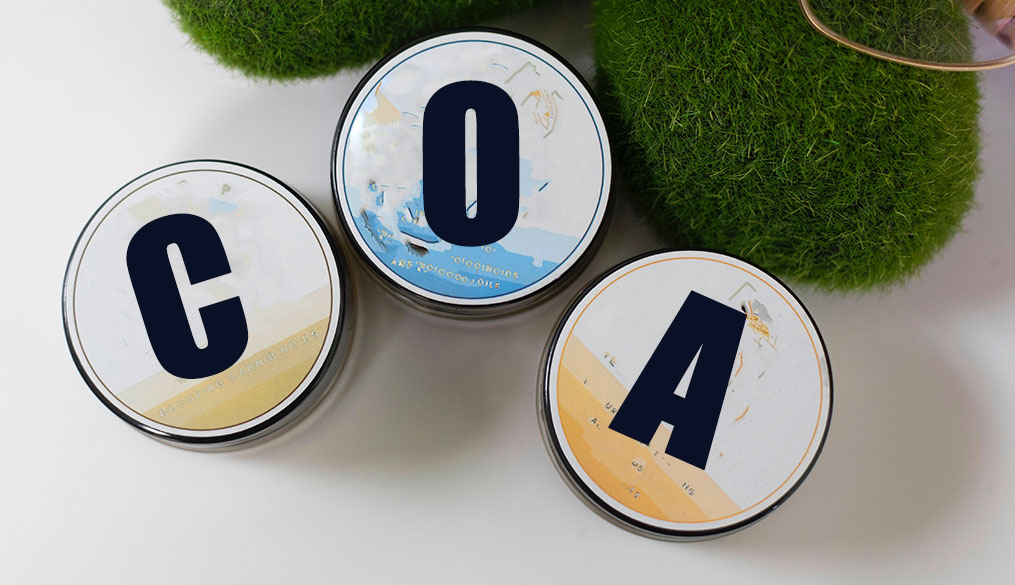Hey, do you think to yourself “COAs, I don’t need no stinking COAs”? As a CBD merchant do you ever wonder, what purpose COAs provide and who cares the most about them? Well, these questions are important even if you are not asking yourself, because…
The cannabidiol (CDB) market is on fire. And the only question is whether you’re to be one of the lucky merchants who’ll cash in on it.
Let me explain…
It’s no secret that the CBD market is absolutely surging right now at a breathtaking speed. It’s expected to hit $22 billion by 2022, which would expand the market by a multiplier of 75 in just six short years. And this means that every day more consumers are getting online to research CBD products for themselves, their families and even their pets!
Your eyes may be lighting up when you think about all this opportunity flowing your way. But there’s a catch: only a certain segment of CBD sellers are going to be able to cash in on this surge, while everyone else struggles to keep afloat.
Who’s cashing in?
Answer: the CBD merchants who are compliant, which includes providing a certificate of authenticity (COA) with every product they sell.
Simply put, a certificate of authenticity provides peace of mind for consumers, the government, and your credit card processors by letting them know what’s in the bottle.
Case in point: there was a rash of synthetic CBD poisonings in Utah in 2017 and 2018, where at least 52 people fell ill. Authorities who conducted lab testing after the fact found that the product didn’t even contain CBD, despite the product packaging saying otherwise. Consumers weren’t provided any information about what ingredients were in the bottle, who manufactured the product, or any other information that is important for consumers to know.
Point is, a certificate of authenticity could have shown that the product contained no CBD, and instead contained a dangerous synthetic compound.
While a COA protects the consumer and provides peace of mind, that’s not the only reason why CBD sellers should offer them. If you want to be truly successful, then you’re going to need to be able to accept credit cards. This requires partnering with a legit merchant account company. The only way to pass the underwriting and compliance checks imposed by a credit card processing bank is to be able to produce a COA .
Maybe you’re already selling CBD products without a COA. Maybe you doing pretty well. And maybe you’re thinking, “COA? I don’t need no stinkin’ COA.”
If that’s the case, then you’ve been coasting by on luck so far. Chances are, you’re working with a CBD merchant account provider that’s not legit. If they don’t request the most basic compliance check – a COA so that they know what’s in the bottle – then you can bet they’re engaging in shady if not outright fraudulent business practices. And when they get caught, your business is going to go down with them.
And that’s not all…
The other issue is that the FTC and/or FDA might come breathing down your neck to see what you’re selling. If you can’t produce a certificate of authenticity for your products, the humorless guys in the black suits are going to assume the worst. They’re going to cause you a lot of headaches until you start selling products with COAs. (And that’s the type of headache that not even a dose of CBD oil can cure.)
What type of headaches? At best, you’ll be fined. At worst, the FDA and/or FTC can shut your entire business down. They can take either of these actions if you’re making unlawful claims about the efficacy of a product, or if you have a fake or missing COA.
If you’re selling CBD in certain places – such as Indiana – then you’re required to put a QR code on your products that consumers can scan to download the certificate of authenticity. It’s just a matter of time before other places follow suit and start requiring COAs.
Finally, there’s one more issue you want to take into consideration. Namely, a COA is just as important to you as it is to the buyer. You need to know what’s in your products in order to sell them with confidence. And of course you can only truthfully advertise them if you know exactly what your products contain. (There’s that FDA/FTC issue again.)
Here’s the bottom line…
Obtaining a COA for your products may feel like a pain in the rear end and something you can shortcut by forging someone else’s certificate or never updating your own. But the tides are turning and the market is getting tougher and smarter. Your credit card processor, the FDA, the FTC and your best customers are going to want to know exactly what is in your products. And you’ll sleep better at night if you know what’s in them too.
Our recommendation? Get a certificate of authenticity for every CBD product you sell, and be sure to keep the certificates updated.







